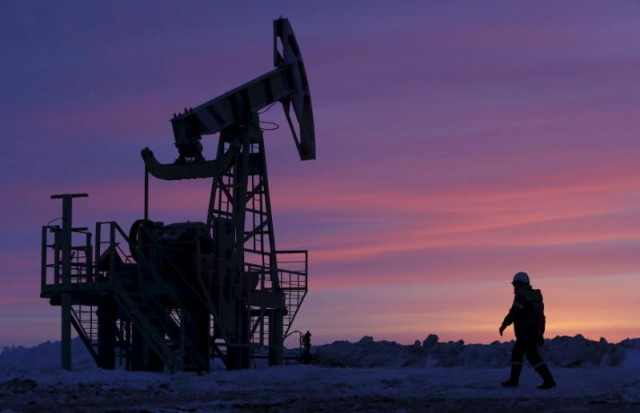PTI govt lifts ban on furnace oil import
Energy committee allows import for one time only to replenish oil reserves

PHOTO: REUTERS
However, the cabinet body, which met on Thursday, allowed only one-time import of furnace oil for replenishing oil reserves of power plants.
Giving a presentation to the energy committee, an official of the Petroleum Division revealed that 350,000 tons of furnace oil was needed to meet energy requirement of the country in May and June 2019. The committee decided to place the matter for approval of the federal cabinet.
Officials pointed out that Pakistan LNG Limited (PLL) and Pakistan State Oil (PSO) were importing over 1 billion cubic feet of liquefied natural gas per day (bcfd), of which zero-rated export-focused industries were being supplied 200 million cubic feet per day (mmcfd).
The committee was told that LNG would continue to be supplied to the zero-rated industries as they were receiving export orders. However, it was agreed to take up the proposal of diverting 100 mmcfd from the zero-rated industries to power producers, if the latter agreed.
Outgoing finance minister Asad Umar chaired the meeting of the Cabinet Committee on Energy before resigning from the post. The committee decided that there would be no load-shedding during Sehr and Iftar in Ramazan and directed the Power Division to ensure uninterrupted electricity supply.
It voiced concern over complaints of prolonged power outages in rural areas and asked the Power Division to adopt a uniform policy for load management in urban and rural areas, and avoid discrimination.
The Power Division presented its internal audit report during the meeting. The report found that the National Electric Power Regulatory Authority (Nepra) had applied high exchange rates while making quarterly indexation.
The committee asked the Power Division to ask the regulator whether it had judicially applied its mind while determining the exchange rates.
The Power Division briefed the committee about its bill recovery campaign being carried out against defaulters. Under the campaign, the division collected Rs318,264 million between November 2018 and February 2019, and arrested 4,225 defaulters.
The committee was updated on the Renewable Energy Policy 2019 and was informed that draft of the policy would be sent to the cabinet in May.
Published in The Express Tribune, April 19th, 2019.
Like Business on Facebook, follow @TribuneBiz on Twitter to stay informed and join in the conversation.



















COMMENTS
Comments are moderated and generally will be posted if they are on-topic and not abusive.
For more information, please see our Comments FAQ